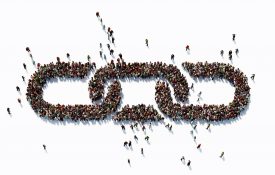-
3 Reasons Why We’re All Loafing At Work–And What To Do About It
Fast Company: To hear Wharton organizational psychologist Adam Grant tell it, at-work freeloading is a heady cocktail: a mixture of intrinsic and extrinsic rewards, of internal motivation and social obligation--or a lack thereof. The best ways to cure loafing, then, active those languid, latent energies. But we must make one caveat: that loafing or slacking can be easily conflated with what we've taken to calling negative space, that is, the not-doing that is crucial to doing your best work. How so? ... Folks slack off when they don't think their work matters--a lack of intrinsic motivation that is also a symptom of burnout, the ultimate bugbear of productivity and at-work wellness.
-
William and Kate: whatever you do, don’t call him Kevin
The Guardian: "What's in a name?" Shakespeare has Juliet ask in Act II, Scene II of Romeo and Juliet. "That which we call a rose by any other name would smell as sweet," she says – arguing that a name is merely a label, and a label does not change the essence of a thing. It's a lovely sentiment, but modern psychological science comes to a different conclusion. For many in the UK, and indeed around the world, one name that matters a great deal is that of William and Kate's newborn baby. On Monday afternoon, the Associated Press reported that the betting agency Ladbrokes had taken 50,000 bets as the Duchess of Cambridge went into labour.
-

Trust in Leaders, Sense of Belonging Stir People to Safeguard Common Goods, Analysis Shows
A team of researchers share scientific findings on conditions that foster cooperative use of common resources, ranging from drinking water to public television.
-
Three Men, Three Ages. Which Do You Like?
The New York Times: It turns out that a young Max and a middle-aged Max can get away with saying things that an old Max cannot. At least that is the conclusion of a new study by Princeton researchers aimed at measuring age discrimination, one of the toughest forms of workplace bias to prove. The subjects of the experiment -- 137 Princeton undergraduates -- were shown a video of a man who would be their partner in a trivia contest. His name was Max, he was white, neither handsome nor ugly, wore a checked shirt and said he was from Hamilton, N.J.
-
Heat wave psychology: Long past, greener future?
I live in Maryland, where we have been suffering through an unrelenting heat wave all summer, and I confess I have cranked up the AC on the worst days. But I always feel guilty about it when I do, and I turn it off whenever the air dips back into the tolerable range. So I’m no saint, but I am mindful. I am motivated by thoughts of the future generations, my kids and their kids and all of the people who will have to inhabit this overheating planet. We all make more or less responsible choices like this every day. We drive hybrids or guzzlers, recycle or don’t, protest or endorse the Keystone XL pipeline.
-
How an Introvert Can Be Happier: Act Like an Extrovert
The Wall Street Journal: Extroverts, those outgoing, gregarious types who wear their personalities on their sleeve, are generally happier, studies show. Some research also has found that introverts, who are more withdrawn in nature, will feel a greater sense of happiness if they act extroverted. Experts aren't entirely sure why behaving like an extrovert makes people feel better. One theory is that being talkative and engaging influences how people respond to you, especially if that response is positive. Others speculate that people get more satisfaction when they express their core self and opinions.

